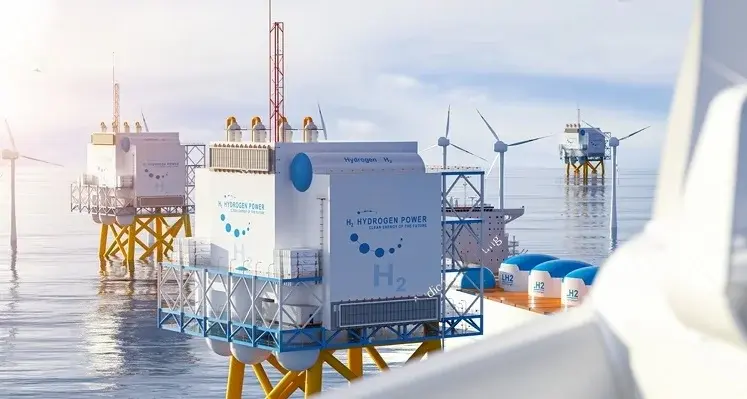Germany’s state-controlled firm Securing Energy for Europe (SEFE) recently announced that it plans to invest around US$540mn in repurposing some of its underground gas storage sites and gas pipelines into infrastructure fit for storing and transporting green hydrogen
In the pursuit of a sustainable energy transition, oil and gas companies are increasingly turning their attention to hydrogen as a promising alternative fuel source, in a marked shift to diversify their conventional hydrocarbon heavy businesses – albeit gradually. Hitherto known for their dominance in fossil fuel extraction and production, these industry giants are utilising their expertise and resources in hydrogen projects to diversify their portfolios and contribute to decarbonisation efforts on a global scale.
Hydrogen, often dubbed the "fuel of the future," holds immense potential as a clean and versatile energy carrier, whilst also having its fair share of detractors and opponents. When used in fuel cells or combustion processes, hydrogen emits only water vapour, offering a carbon-neutral alternative to traditional fossil fuels. As the world seeks solutions to mitigate climate change and reduce greenhouse gas emissions, hydrogen has emerged as an important player in the transition towards a low-carbon economy.
Recognising the latent potential of hydrogen, oil and gas companies are leveraging their expertise, infrastructure, and resources to spearhead the development of hydrogen projects. These initiatives encompass various aspects of the hydrogen value chain, including production, distribution, storage, and utilisation.
Ambitious plans
Companies have lined up ambitious plans to invest in this sector. ExxonMobil set up in 2021 a company called Low Carbon Solutions to focus on reducing CO2 emissions by scaling up CCS and new fuels such as blue hydrogen. ExxonMobil is to build a 1 bcfd blue hydrogen and ammonia production plant linked with a 7 million tons per year CCS system at its refinery in Baytown, Texas. In 2021 Shell launched the largest electrolyser system in the EU as part of a plan to establish a green hydrogen network. Chevron has joined with the US Department of Energy (DOE) to investigate renewable natural gas, meaning gas from landfills, etc, to generate hydrogen.
Other than actual production, and as SEFE is looking to do, oil and gas companies are increasingly exploring opportunities to integrate hydrogen into their existing infrastructure and operations. For instance, hydrogen blending in natural gas pipelines can enhance fuel flexibility and reduce carbon emissions from heating and power generation. Additionally, hydrogen can be utilised as a feedstock in refining processes or as an alternative fuel for transportation, offering potential pathways for emissions reduction across various sectors.
However, the transition to a hydrogen economy is not without challenges. Significant investment is required to scale up hydrogen production, improve efficiency, and reduce costs to achieve competitive levels. Moreover, the establishment of supportive regulatory frameworks, infrastructure and above all subsidies and incentives will be essential to foster market growth and adoption.
Despite these challenges, the momentum behind hydrogen continues to grow, propelled by growing popularity as its role in achieving climate goals and fostering energy security. As oil and gas companies pivot towards hydrogen, they are not only diversifying their revenue streams but also reaffirming their commitment to sustainability and environmental stewardship.
This article is authored by Synergy Consulting IFA










